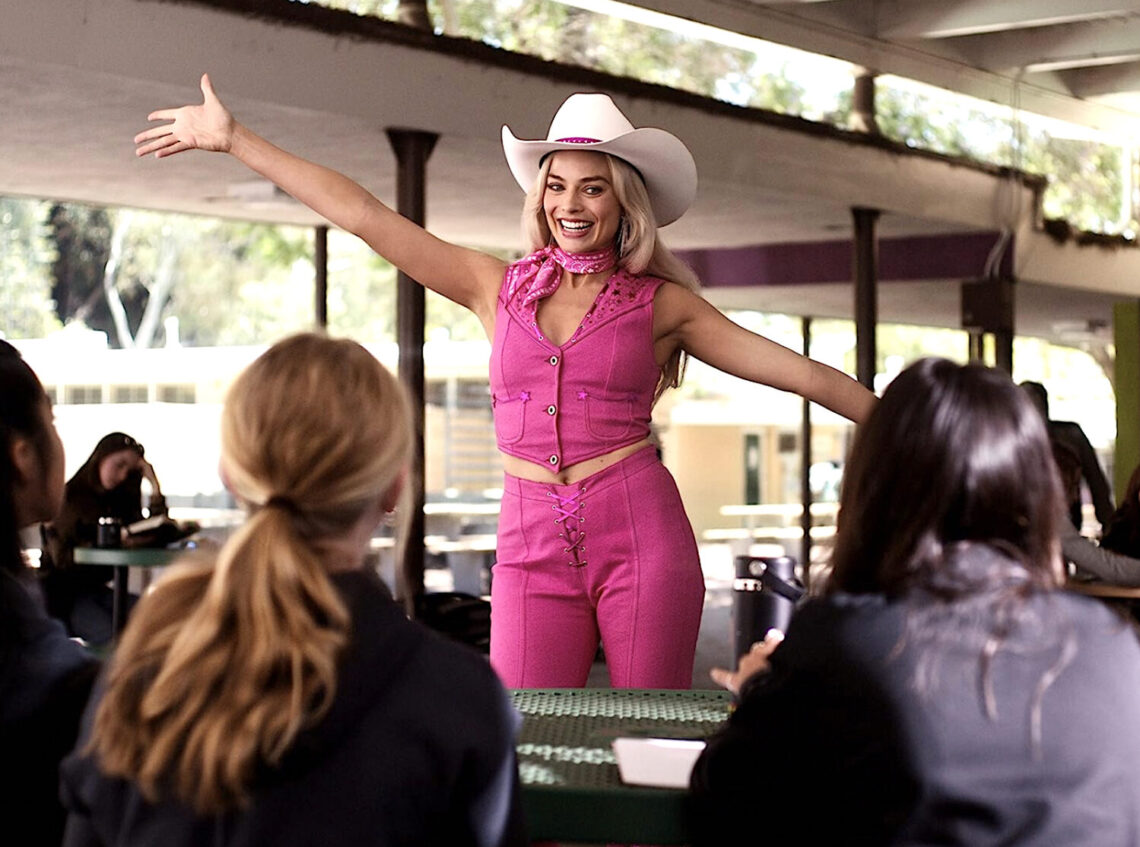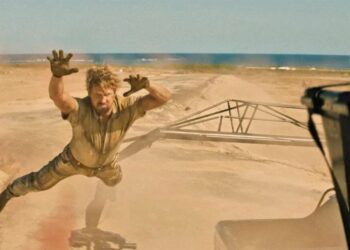In terms of hype, we can’t remember anything nearly as relentless and rampant as pop culture’s pink plunge leading up to the Barbie movie’s release this past weekend. For the past several months, the Barbonanza made the world acutely aware of the film, its stars, and its intent to challenge the stereotypes that critics of Mattel and its iconic blonde doll have been accused of promoting (namely, unrealistic beauty standards) for decades.
Now that the numbers are in, the oversaturation clearly paid off at the box office, and it’s a historic triumph for female directors. But the girlie, glam, giggly glut of promo, pop-ups and product tie-ins, ultimately muddle the message the film’s going for. Barbie tries to have its pastel cupcakes and eat them too, as a vehicle for colorful escape, as a cultural commentary and as a meta-spin on product placement. It nearly succeeds with moments of empowerment shining as bright as the pearly white smiles of stars Margot Robbie (as “stereotypical” Barbie) and Ryan Gosling (as her not so beloved “boyfriend” Ken). Nearly.
It’s a movie about dolls… it’s not that deep. If only this statement were true, we might have been able to enjoy the film for its fantasy feel, production value and attention to Barbie brand history. But while there are shades of Toy Story-like nostalgia and childhood memory-fueled warmth, writer/director Greta Gerwig and co-writer husband Noah Baumbach (White Noise) have bigger mermaids to fry (and by the way, Sea Barbies are played by Dua Lipa and John Cena in cute cameos).
Barbie is a focused and fierce skewering of the patriarchal world we all live in and it’s one that any woman will understand and relate to. Women cannot have it all and when we come close, it’s because of sweat and sacrifice and subjecting ourselves to sub-par treatment, on the streets, in the workplace and even at home. Nothing new, and we must note here the anti-woke backlash to the film is ridiculous.
Barb…
Read the full article here







